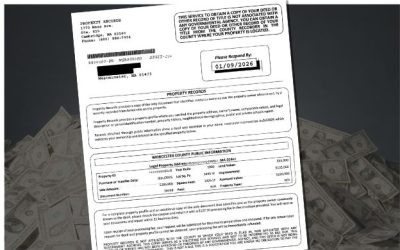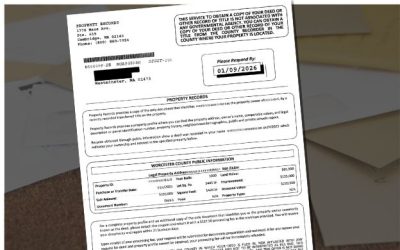
Dec 11, 2025 | Consumer Tips, Home Buyer Tips, Home Seller Tips, Home Tips, Homebuyer Tips, Interesting Stuff
If there’s one thing we hear often from agents and loan officers, it’s this: “I would like more warm referrals — not cold leads that waste my time.”
Here are three easy wins you can put into play immediately. These aren’t theory. They work because they make people think of you first, without you chasing anyone.
1. Send a “5-Minute Holiday Check-In” to Past Clients
Don’t overthink it. Keep it simple:
“Hey, just wanted to check in before the holidays. Anything going on with your home or your plans for 2026 that you want to bounce off me?”
This message hits the sweet spot — it’s warm, personal, and not salesy.
Every year, people start thinking about tax implications, life changes, refinancing, upsizing, downsizing, and renovation goals right around the holidays.
You’re giving them permission to talk to you again.
2. Share One Useful Local Market Snapshot (No Fear Tactics)
Clients don’t want national stats. They want to know what’s happening within 20 miles of their front door.
You can send something like:
“Quick update: Inventory is shifting in our area, and buyers/sellers are getting opportunities we didn’t have six months ago. Want me to send you the 60-second version for your neighborhood?”
This positions you as the guide — not the alarm bell.
3. Ask Local Professionals for a “Holiday Bump” Exchange
Reach out to:
- insurance reps
- accountants
- estate attorneys
- contractors
- property managers
Say:
“Holiday rush is starting. Want to exchange a couple warm intros for clients who could use each other’s services before the end of the year?”
You’d be surprised how many pros love this, because they’re also trying to finish the year strong.
Providing title, escrow, closing and settlement services to clients throughout Massachusetts and New Hampshire

Aug 21, 2025 | Buying Real Estate, Consumer Tips, Credit Scoring, Home Building Tips, Home Buyer Tips, Home Buying Tips, Home Closings, Home Mortgage, Home Mortgage Tips, Home Seller Tips, Home Selling Tips, Home Tips, Home Values, Homebuyer Tips, Homeowner Tips
Once upon a time, the path to homeownership started in your late 20s. Today, the median age of a first-time buyer has climbed to 38 — the highest in U.S. history. In Massachusetts and New Hampshire, where prices remain high and incomes haven’t kept pace, first-time buyers make up only 24% of the market. This generational shift isn’t just a national trend — it’s reshaping local markets, too. Let’s explore why fewer young buyers are entering the game and what it means for buyers, sellers, and lenders alike.
The Shrinking First-Time Buyer Pool
In 2010, first-time buyers represented half the housing market. By 2024, that number dropped to less than a quarter. It’s not because younger generations don’t want to buy — surveys show they do — but the financial barriers are higher than ever.
For Massachusetts and New Hampshire buyers, the challenge is particularly acute. Both states rank among the nation’s most expensive housing markets, with limited inventory and bidding wars still common in desirable areas. That leaves many would-be buyers sidelined, even when mortgage rates dip slightly.
Why It’s Harder Than Ever
The income needed to buy a median-priced home has soared to over $126,000 a year, nearly 60% higher than in 2021. Meanwhile, household incomes in the region have barely budged. That mismatch has locked many younger buyers out of the market.
Millennials and Gen Z carry heavy financial baggage, from student loans to credit card balances. With Gen Z’s average personal debt topping $94,000, saving for a down payment feels more like a marathon than a sprint.
Entry-level homes — once the natural first step into ownership — are scarce. Many builders in New England focus on higher-margin luxury units, while affordable starter homes are either aging or quickly snapped up.
Younger generations are delaying marriage, children, and long-term settling, which historically drove first-home purchases. Add in higher rent burdens and inflation, and the dream of ownership is being pushed later into life.
What This Means for Sellers
If you’re selling in Massachusetts or New Hampshire, this trend could mean fewer young families competing for your property. That may soften demand in some price brackets, especially for entry-level homes. On the flip side, it also means that when younger buyers do show up, they’re highly motivated — and often well-prepared with family support, FHA financing, or cash gifts.
What This Means for Lenders
Lenders can’t assume yesterday’s products will work for today’s market. Winning over first-time buyers requires:
- FHA and low down payment options to lower the entry barrier
- Alternative credit scoring (including rental and utility history) to qualify more applicants
- Digital-first lending to meet younger buyers where they are
- Educational resources to guide cautious, debt-burdened buyers through the process
The lenders who succeed won’t just hand out mortgages — they’ll provide tools, trust, and guidance.
What This Means for Buyers
If you’re a first-time buyer in MA or NH, you’re not alone in feeling like the deck is stacked against you. But there are pathways forward:
- Explore FHA or MassHousing programs that reduce down payment hurdles
- Work with a closing attorney early to understand costs and risks
- Consider expanding your search beyond major metros into more affordable towns or suburbs
The shrinking pool of first-time buyers isn’t just a statistic — it’s a reality that shapes how homes are bought, sold, and financed in Massachusetts and New Hampshire. For buyers, it means persistence and planning. For sellers, it means understanding who your likely buyers really are. And for lenders, it means rethinking old playbooks to stay relevant.
At The Law Office of David R. Rocheford, Jr., P.C., we help buyers, sellers, and lenders adapt to today’s challenges and keep closings on track.
Ready to navigate the new landscape? Contact us today
Providing title, escrow, closing and settlement services to clients throughout Massachusetts and New Hampshire
“I would highly recommend David as a closing attorney. I have known David and have been using his office for many years. David’s professionalism when dealing with me, my closing department and most especially my clients has been always exemplary.”
SENIOR LOAN OFFICER, SHAMROCK FINANCIAL SERVICES
“The Law Office of Attorney David R. Rocheford, Jr. is by far the most exceptional real estate law office that I have had the pleasure of working with. The professionalism is by far second to none.”
SENIOR LOAN OFFICER, SALEM FIVE MORTGAGE SERVICES
“Attorney David Rocheford has provided settlement and title services for me and Greenpark Mortgage several years. He has assisted all of my clients, including my family and friends with mortgage closings. Always providing excellent service. Reliable and trustworthy!”

Jun 19, 2025 | Around The Home, Around The Hoome, Artificial intelligence, Buying Real Estate, Chapter 7 Bankruptcy, Consumer Tips, Credit Scoring, Fair Housing, Federal Reserve, FHFA, Financial Crisis, Financial Fraud, Financial Reports, Foreclosure, Happy Thanksgiving, Holidays, Home Building Tips, Home Buyer Tips, Home Buying Tips, Home Care, Home Care Tips, Home Closings, Home Decorating, Home Financing Tips, Home Maintenance, Home Mortgage, Home Mortgage Tips, Home Seller Tips, Home Selling Tips, Home Tips, Home Values, Homebuyer Tips, Homeowner Tips, Housing Analysis, Housing Market, Interesting Stuff, Investment Properties, Legislation, Market Outlook, Mortagage Tips, Mortgage, Mortgage Guidelines, Mortgage Lenders, Mortgage Rates, Mortgage Tips, mortgage-rates-whats-ahead-september-17-2012, News, Organization Tips, Personal Finance, Probate Law, Rankings, Real Estate, Real Estate Agent Information, Real Estate Definitions, Real Estate Tips, Real Estate Trends, Realtors, Selling Real Estate, Selling Your Home, Short Sales, Statistics, Success, Taxes, The Economy, Title Insurance
Whether you’re buying with cash, investing from abroad, transferring property to a family member, or just trying to close without a headache, you’ll want to know what can trigger federal scrutiny — and how to stay off the radar.
From flagged wire transfers and shell companies to gift-of-equity sales and land near military zones, this isn’t your average title-and-keys situation.
It’s real estate with a side of national security, tax enforcement, and financial crime prevention.
Is Big Brother Watching Your Home Sale?
What Buyers and Sellers Should Know About Federal Oversight
You’re Not Paranoid — They Might Actually Be Watching
What you didn’t know on how federal agencies keep tabs on select real estate transactions.
Your Closing Packet Could Be a Federal File
How Your Paper Trail Might Raise Red Flags — And What You Can Do About It
What the FBI, IRS, and Homeland Security
Could See in Your Closing Docs
We’re unpacking what agencies might spot inside your deal’s fine print.
Caught in the Crosshairs? What Triggers Federal Interest in Your Home Sale
The Top Red Flags That Could Invite a Closer Look from Washington
Cash, LLCs, or Land Near a Base? You Might Just Be a Target
The warning signs that put your deal on the government’s radar — and how to stay clear.
Follow the Money: How the IRS Tracks Financial Crimes Through Real Estate
From Unreported Income to Shell Game Schemes
— What IRS-CI Is Looking For
Your Closing Could Be an Audit Trigger — Here’s How the IRS Sees It
Explore the patterns, documents, and loopholes that turn ordinary deals into criminal cases.
Providing title, escrow, closing and settlement services to clients throughout Massachusetts and New Hampshire
“As a realtor, the Rocheford team went above and beyond to make sure my client was not only protected from a legal standpoint but also operated in a timely manner to execute the sale of my client’s dream home.
Thank you for the great experience for myself and my client! Looking forward to our next deal together!”
Realtor®
“I don’t usually use attorneys that often. But if an attorney is needed, I couldn’t recommend this law office enough. I always pride myself on responding quickly to emails and calls, but I was in awe of how fast paralegal Robert Heckman would respond to us. We sold our house a couple months ago and then did a two-part land swap with neighbors and my folks, and both transactions were seamless, including coming in to sign paperwork.
In short, if you need a law office that is responsive and attentive to detail, definitely consider them!”
Leominster, MA
“Excellent, conscientious and professional.
The communication throughout our Real Estate transaction was better than expected. We thought the fee to be very reasonable considering the work accomplished on our behalf. The law office handled the entire closing without us having to be in attendance….as we requested. I have had experience with very competent lawyers and law firms as the result of my previous profession. I would place this law office right up there among the best in their real estate field of expertise and surprisingly at very reasonable and affordable rates/fees.”
Buzzards Bay, MA

Jun 19, 2025 | Buying Real Estate, Consumer Tips, Federal Reserve, Financial Fraud, Financial Reports, Home Buyer Tips, News, Selling Real Estate, Selling Your Home
Your Closing Packet Could Be a Federal File — Here’s Why
When you’re finalizing a real estate transaction, your focus is likely on the price, terms, and closing date — not on what a federal agency might find in your paperwork. But if certain conditions apply, your stack of signed documents could become part of a federal investigation.
From title fraud to suspicious wire transfers, real estate closings contain exactly the kind of data federal agencies use to detect fraud, money laundering, or foreign interference. Let’s break down the key documents that could raise red flags — and how to keep your transaction clean.
Settlement Statements (CD/HUD-1): Show Me the Money
These documents detail the financial anatomy of your transaction — where the money is coming from and where it’s going.
Agencies like the IRS Criminal Investigation Division (IRS-CI) and Homeland Security Investigations (HSI) use these to detect:
- Undisclosed cash sources
- Overstated or fake expenses
- Unusual wire transfers or third-party contributions
IRS-CI investigates tax evasion and unreported income often spotted through property records.
Learn how IRS-CI tracks financial crimes through real estate
Power of Attorney or Signature Authority: Who’s Really Involved?
Documents granting someone else signing authority — especially in cash or trust purchases — can prompt FBI interest if:
- The grantor isn’t properly identified or verified
- A straw buyer is suspected (someone buying on behalf of an undisclosed party)
- The purchase is connected to shell companies with no clear owner
These red flags are commonly tied to fraud and money laundering investigations.
Read the FBI’s guidelines on common real estate fraud patterns
Proof of Funds or Bank Letters: Show Your Work
Cash buyers are often asked to show proof of funds, but not all banks or letters are equal in the eyes of compliance officers.
Federal agencies may scrutinize:
- Large transfers from offshore accounts
- Lack of financial institution transparency
- Inconsistencies between stated income and assets
Homeland Security Investigations (HSI) targets international financial crimes — especially involving real estate.
See how HSI investigates financial crimes tied to real estate
Entity-Based Transactions: LLCs, Trusts, and Shell Games
When a home is purchased through a legal entity — especially in cash — the title and closing documents must disclose the “beneficial owner.”
If they don’t, the transaction may:
- Violate FinCEN Geographic Targeting Orders
- Trigger FinCEN reporting requirements from title companies
- Be flagged for money laundering or sanctions evasion
Review FinCEN’s current rules for real estate ownership transparency
Tax Documents: When Closings and Capital Gains Collide
The IRS reviews real estate closings for unreported capital gains, under-the-table transactions, or misuse of tax exemptions.
Closings can trigger audits when:
- Sale proceeds are underreported
- A home is falsely claimed as a primary residence
- Form 1099-S isn’t issued when it should be
Sellers attempting to avoid tax obligations through title maneuvering or “gift-of-equity” deals should be cautious.
Understand when Form 1099-S is required in real estate transactions
What You Can Do (Besides Panic)
You don’t have to be laundering millions or working for a foreign government to attract unwanted attention. In most cases, red flags are raised by incomplete, inconsistent, or unexplained paperwork. Here’s how to stay ahead:
- Work with a closing attorney who understands both the legal and compliance landscape
- Avoid cutting corners on financial disclosures or title documentation
- Be honest and thorough when structuring transactions involving trusts, foreign buyers, or LLCs
Want to Keep the Feds Out of Your Closing?
Our team at The Law Office of David R. Rocheford, Jr., P.C. ensures every “i” is dotted and every “t” is lawyer-checked. We review your paperwork with a compliance lens — so you don’t accidentally invite scrutiny.
Providing title, escrow, closing and settlement services to clients throughout Massachusetts and New Hampshire
“I would highly recommend David as a closing attorney. I have known David and have been using his office for many years. David’s professionalism when dealing with me, my closing department and most especially my clients has been always exemplary.”
SENIOR LOAN OFFICER, SHAMROCK FINANCIAL SERVICES
“The Law Office of Attorney David R. Rocheford, Jr. is by far the most exceptional real estate law office that I have had the pleasure of working with. The professionalism is by far second to none.”
SENIOR LOAN OFFICER, SALEM FIVE MORTGAGE SERVICES
“Attorney David Rocheford has provided settlement and title services for me and Greenpark Mortgage several years. He has assisted all of my clients, including my family and friends with mortgage closings. Always providing excellent service. Reliable and trustworthy!”

Apr 16, 2025 | Consumer Tips, Financial Reports, Home Buyer Tips, Home Buying Tips, Home Financing Tips, Home Mortgage, Home Mortgage Tips, Home Seller Tips, Home Selling Tips
Understanding Transfer Taxes (Tax Stamps) in Massachusetts
When it comes to selling real estate in Massachusetts, one fee tends to catch sellers off guard: transfer taxes, also known as real estate tax stamps. At The Law Office of David R. Rocheford, Jr., P.C., we get a lot of questions about these costs — and we’re here to make sure you (and your clients) understand what to expect.
Who Pays the Transfer Tax in Massachusetts?
In nearly all cases, the seller is responsible for paying the transfer tax. However, during the negotiation process, the parties can agree to split the fee — or shift it entirely to the buyer. Like most things in real estate: it’s all negotiable.
The current transfer tax rate is $2.28 per $500 of the property’s sale price — that’s $4.56 per $1,000. This fee is paid to the state by purchasing tax stamps from the Registry of Deeds when the new deed is recorded.
Example: On a $500,000 home sale, the transfer tax would be $2,280.
You can review current rates and exemptions on the Massachusetts Department of Revenue website.
Not exactly — transfer taxes are not tax-deductible on your income tax return. However, they do get added to the cost basis of the property, which may reduce your capital gains tax when the property is sold in the future.
Some nonprofit organizations and federal agencies are exempt. Veterans Affairs (VA) and HUD transactions, for example, often qualify for exemption — but always confirm with the Registry and your closing attorney.
- The tax applies to any sale over $100.
- The tax is separate from municipal excise taxes or local fees (if applicable).
- The stamps are literally affixed to the deed — old school, but legally required.
Small details. Big difference.
Whether you’re buying or selling, understanding transfer taxes is a small detail that can make a big difference at the closing table. We help our clients plan ahead and avoid last-minute surprises every step of the way.
1234 Divi St. #1000, San Francisco, CA 94220
Copyright © 2026 Divi. All Rights Reserved.

Apr 16, 2025 | Consumer Tips, Fair Housing, Home Building Tips, Home Buyer Tips, Home Buying Tips, Home Maintenance, Home Seller Tips, Home Tips, Selling Real Estate, Selling Your Home
Won’t You Be My Neighbor? ADUs Now Permitted by Right in Massachusetts
Accessory Dwelling Units (ADUs) — small, independent living spaces on the same property as a main home — just got a big green light in Massachusetts. Thanks to the Healey-Driscoll Administration’s “Affordable Homes Act,” homeowners can now build or convert ADUs by right in many communities, making it easier to add housing and income flexibility.
If you’re a Realtor®, lender, or homeowner, here’s what you need to know to make sense of the new rules — and how they impact your property or transactions.
An ADU is a secondary living unit with its own sleeping, eating, cooking, and bathroom facilities. Think: a converted garage, a backyard cottage, or a finished basement with a separate entrance.
New Rules (Effective 2024):
The updated state law allows ADUs:
- As detached structures
- As additions to existing homes
- As conversions of garages, attics, or basements
To qualify, the ADU must be:
- Less than half the size of the primary residence or under 900 square feet
- Located in a single-family zoning district
- Code-compliant with a separate entrance
Key Protections for Homeowners
The new law, under MGL Chapter 40A, Section 3, overrides local zoning if the ADU meets minimum state standards:
- Cities cannot ban single ADUs
- Owner occupancy is not required
- ADUs can be rented for long-term housing
- Only one extra parking spot can be required
Local Nuances Still Apply:
Municipalities can:
- Ban short-term rentals (Airbnb, etc.)
- Restrict ADUs in flood zones or historic districts
- Require compliance with Title V septic and environmental regulations
Each of Massachusetts’ 351 towns has its own zoning quirks. While ADUs are protected, local rules may shape your options. Thinking of building one? Start by calling your local planning board.
At The Law Office of David R. Rocheford, Jr., P.C., we help clients navigate land use, permitting, and local regulations with confidence. Whether you’re buying, building, or advising, we’re here to help.
1234 Divi St. #1000, San Francisco, CA 94220
Copyright © 2026 Divi. All Rights Reserved.

























